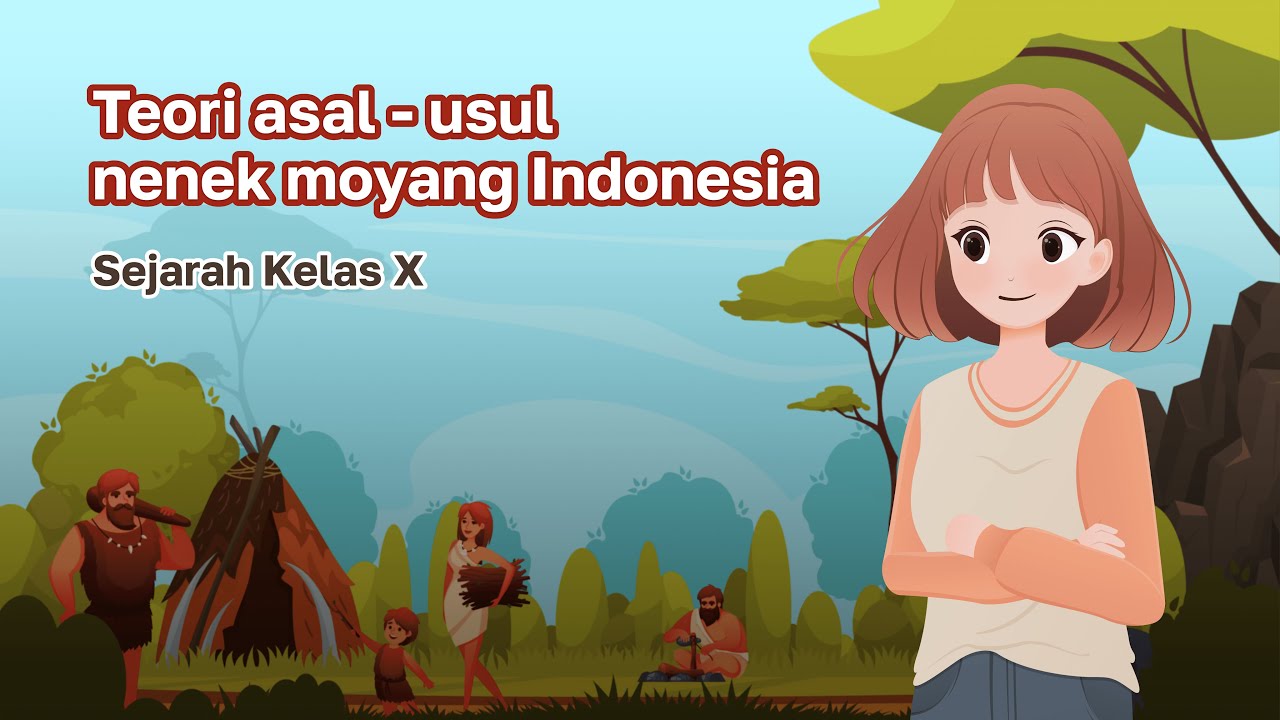Kisah Suku Tengger, Keturunan Terakhir Majapahit yang Justru 'Terisolasi' dari Nusantara
Summary
TLDRThe Tengger tribe believes their ancestors originated from the Majapahit Kingdom. 'Tengger' in Javanese means 'firm and unmoving,' and their homeland, the Tengger Mountains, is considered sacred. They practice Hinduism and honor the spiritual servants of Sanghyang Widhi Wasa, known as 'hulun.' The tribe has preserved its unique identity since the Islamic Mataram expansion in the 17th century and the arrival of the Dutch in 1764. Their culture is distinct, using the ancient Kawi language and the Saka calendar, which is key to their traditional ceremonies.
Takeaways
- 😀 The Tengger people believe their ancestors originated from the Majapahit kingdom.
- 🗻 'Tengger' in Javanese means 'upright' or 'still', symbolizing their firm, unmoved nature.
- 🕉️ The Tengger highlands are considered a sacred place, where Hindu teachings recognize the presence of spiritual servants of Sanghyang Widhi Wasa.
- 👤 These spiritual servants are known as 'hulun', as mentioned in the Walandit inscription from 851 Saka.
- 📜 The Walandit inscription, found in Penanjakan, Pasuruan, indicates that the village of Walandit was inhabited by these spiritual figures.
- 🏰 The Tengger people maintained their distinct identity, resisting assimilation from the Mataram Islamic kingdom in the 17th century.
- 🇳🇱 Dutch influence in the region began in 1764, and in 1785, they established a rest house in Tosari, leading to more settlers in Tengger.
- ⛰️ The isolation of the Tengger people helped preserve their unique customs and beliefs, rooted in ancestral traditions from Majapahit.
- 🙏 Their beliefs stem from the Shiva-Buddha tradition, which later evolved into Hinduism as practiced by the Tengger community today.
- 🗣️ The Tengger people still speak Kawi and Old Javanese, making their language difficult to understand for other Javanese communities.
Q & A
Who do the Tengger people believe their ancestors are?
-The Tengger people believe their ancestors came from the Majapahit Kingdom.
What does 'Tengger' mean in Javanese?
-'Tengger' in Javanese means 'firm' or 'still and unmoving.'
What is the spiritual belief of the Tengger people?
-The Tengger people follow a Hindu-based spiritual belief that acknowledges spiritual servants of Sanghyang Widhi Wasa, and they are referred to as 'hulun.'
What historical artifact mentions the spiritual servants of the Tengger people?
-The Walandit inscription from the year 851 Saka mentions the spiritual servants (hulun) of the Tengger people.
How did the Tengger people maintain their identity during the expansion of the Mataram Islam Kingdom?
-The Tengger people preserved their cultural and spiritual identity despite the expansion of the Mataram Islam Kingdom into East Java by continuing to follow their ancestral traditions.
What significant event took place in the Tengger region in the late 18th century?
-In 1785, the Dutch established a rest area in Tosari, and the Tengger region began to see an influx of settlers.
How did the Tengger people differentiate themselves from other communities?
-The Tengger people isolated themselves from other societies, retaining their ancestral Hindu traditions and using an ancient Kawi and Old Javanese language, which made communication with other Javanese people difficult.
What religious tradition did the Tengger people’s ancestors follow?
-The Tengger people’s ancestors followed a syncretic tradition of Shiva-Buddha, which later evolved into the Hindu faith they practice today.
What kind of calendar system do the Tengger people use?
-The Tengger people use the Saka calendar, which is based on a Hindu system with 13 months, including months like Kasel, Karo, Kapat, Kasanga, and Kasadha.
How does the Tengger calendar influence their customs?
-The Tengger calendar dictates the timing of their traditional ceremonies and rituals, which are deeply tied to their spiritual and cultural practices.
Outlines

Cette section est réservée aux utilisateurs payants. Améliorez votre compte pour accéder à cette section.
Améliorer maintenantMindmap

Cette section est réservée aux utilisateurs payants. Améliorez votre compte pour accéder à cette section.
Améliorer maintenantKeywords

Cette section est réservée aux utilisateurs payants. Améliorez votre compte pour accéder à cette section.
Améliorer maintenantHighlights

Cette section est réservée aux utilisateurs payants. Améliorez votre compte pour accéder à cette section.
Améliorer maintenantTranscripts

Cette section est réservée aux utilisateurs payants. Améliorez votre compte pour accéder à cette section.
Améliorer maintenantVoir Plus de Vidéos Connexes

FOLKLORE Asal usul Masyarakat Tengger dan Upacara Kasada

Teori Asal Usul Nenek Moyang Indonesia | Sejarah Kelas 10 - KHATULISTIWA MENGAJAR

Benarkah Majapahit itu Kerajaan Islam?

Tari Sodoran Jadi Warisan Budaya Tak Benda Dari Tengger

Drama Kerajaan Majapahit: SMAN 3 Sukabumi X7

Berikut ini Macam-Macam Upacara Adat di Indonesia - Fakta Menarik
5.0 / 5 (0 votes)
